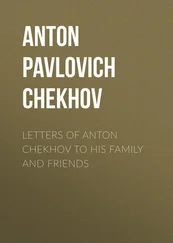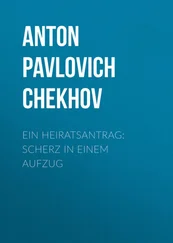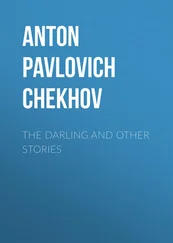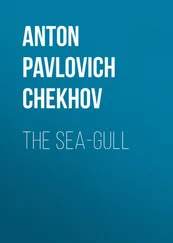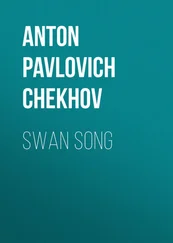Donald Rayfield - Anton Chekhov. A life
Здесь есть возможность читать онлайн «Donald Rayfield - Anton Chekhov. A life» весь текст электронной книги совершенно бесплатно (целиком полную версию без сокращений). В некоторых случаях можно слушать аудио, скачать через торрент в формате fb2 и присутствует краткое содержание. Жанр: Биографии и Мемуары, на английском языке. Описание произведения, (предисловие) а так же отзывы посетителей доступны на портале библиотеки ЛибКат.
- Название:Anton Chekhov. A life
- Автор:
- Жанр:
- Год:неизвестен
- ISBN:нет данных
- Рейтинг книги:5 / 5. Голосов: 1
-
Избранное:Добавить в избранное
- Отзывы:
-
Ваша оценка:
- 100
- 1
- 2
- 3
- 4
- 5
Anton Chekhov. A life: краткое содержание, описание и аннотация
Предлагаем к чтению аннотацию, описание, краткое содержание или предисловие (зависит от того, что написал сам автор книги «Anton Chekhov. A life»). Если вы не нашли необходимую информацию о книге — напишите в комментариях, мы постараемся отыскать её.
Anton Chekhov. A life — читать онлайн бесплатно полную книгу (весь текст) целиком
Ниже представлен текст книги, разбитый по страницам. Система сохранения места последней прочитанной страницы, позволяет с удобством читать онлайн бесплатно книгу «Anton Chekhov. A life», без необходимости каждый раз заново искать на чём Вы остановились. Поставьте закладку, и сможете в любой момент перейти на страницу, на которой закончили чтение.
Интервал:
Закладка:
FOUR
The Theatres of Life and Art
1870-3
A WELL-FITTED SHOP and a bourgeois drawing room overlooking two tree-lined avenues, soon to be lit by gas, formed the European facade of the Moiseev house. The crowded bedrooms, the sheds in the yard, the kitchen without running water, the absence of a bath, represented the Asiatic reality behind the facade. The image of a provincial home with stinking, cockroach-infested back rooms and a magnificent facade would haunt Anton's prose to his last story. The prosperous European facade was fragile, for Pavel lacked financial acumen. Within a year he had competition just across the road; he bought unsaleable wine on credit. Debts mounted, and the family fortunes turned. In September 1871 Anton's baby sister Evgenia died. Kvgenia was far more deeply affected by this than by the later deaths of three adult sons. Even sixteen years later Aleksandr remarked that his mother remembered that death 'as if it were today'.
Pavel extended his opening hours and rented a stall on the square by the new railway station. When the stall failed to cover even the costs of its paraffin lamp, he rented a stall in the new market. Worst of all, in the summer holidays he forced his sons - including the twelve-year-old Anton - to run these outposts, opening a stall at 5 a.m. and staying until midnight to return with pitiful takings.
The summer holidays gave relief in Anton's childhood: fishing the rivers and roaming the countryside were to be prerequisites of happiness in his adult life and his fiction. On Anton the sea left a mark even stronger than the countryside. Taganrog boys fished from the piles driven into the shallow bed of the unfinished port, or went west, to the stony beach of Bogudonie, known as Smuggler's Bay. Diving into the water one day, Anton cut open his head, acquiring the scar listed on his identity papers. Here he sat with his eldest brother, often next to the school inspektor Diakonov, like prey and predator visiting i:
23
I Ë ÏÈ Ê ÃÎ I III MAN
the same watering hole. They angled lor tlit- liny, edible Gobius fish. A thread was passed through the gills of each one; the chain of transfixed fish was left writhing in the water, to keep them fresh until they were taken to market. There were diversions on the way back: schoolboys would slash the sacks of Clementines or walnuts in the carts that climbed slowly from the port to the town. If the driver caught the thieves, he would lash out with his knout.22 Fishing gave Anton the stillness he desperately missed at home. More exciting sport was found on wasteland, with a school friend, Aleksandr Drossi, catching finches. (Some of the Chekhov brothers were to keep finches and songbirds, flying around their living rooms, in adult life.) The other sport was in the cemetery, whose mixture of Orthodox austerity, flamboyant Italian statuary and permanent decrepitude haunts much of Chekhov's prose. Here Anton caught tarantula spiders with a ball of wax.23
Even in boyhood the sea and the river Mius had a primarily melancholic effect on Anton, becoming memento mori in his mature stories. Writing to his patron, the novelist Grigorovich, in 1886, Chekhov would recall: When my blanket falls off me at night, I begin to dream of enormous slippery rocks, the cold autumn water, the bare shores - all this is vague, in a mist, with not a fragment of blue sky… When I run away from the river, I pass the tumbledown cemetery gates, the funerals of my schoolteachers. Anton's life broadened in the early 1870s. He explored the surroundings of the town and visited school friends and their parents. Aunt Fenichka's laissez-faire household allowed pillow fights, while the families of Taganrog's officials and merchants gave still greater relief from a grim home life. Anton now had intimations of future torments: migraine, and abdominal illness, then called 'catarrh of the stomach' or 'peritonitis', and attributed to bathing in cold water. Summer brought malarial fevers. Anton thought of diarrhoea and a constant cough as normal. Although Evgenia had shown symptoms -spitting blood, fever - Uncle Vania Morozov had already died of ÒÂ, and Aunt Fenichka suffered fits of coughing and debilitation, nobody suggested that tuberculosis might have struck Anton. For the time being, Anton's vitality fought off recurrent infection. The
1870-3
boy looked very different from the man. We know a face honed by suffering, a chest hollowed by coughing: the broad-shouldered, wide-cheeked peasant boy before the mid 1880s is a shocking contrast to the later stereotype. He was known as 'bomba' at school for his large head.
In July 1871, when Anton was eleven, an ox cart stopped at the shop: it was the engineer from Krepkaia, where grandfather Egor was employed. He had come to Taganrog to buy a piece of farm machinery. Aleksandr and Anton begged their parents to allow them to ride the ox cart and stay with their grandparents. They left in such haste that they had no protection from the rainstorms that struck the cart as it trundled over the steppe: it took two days to cover forty-five miles. Being soaked in the storm, getting lost in the reeds of a steppe lake, being berated by the drunken carter, meeting a Jewish innkeeper (whom the carter and engineer cheated) - all these incidents were transmuted sixteen years later into Chekhov's masterpiece 'Steppe'. And just as 'Steppe' climaxes in a great disillusionment when the mysterious old man who is the object of the first part of the journey turns out to be of little interest, so Aleksandr and Anton finally reached their grandfather's estate to find that he had long been posted to an outlying village, Kniazhaia, where he was hated as 'the viper'. Egor himself expressed no animation when he finally saw his grandchildren. Worse, as soon as the peasants realized that these boys were the grandchildren of the manager, they turned away and cursed them as the 'viper's' offspring. Egor and Efrosinia lived like peasants. The boys camped among the dustsheets in the house of the absentee young countess. After nearly a week, Aleksandr and Anton struck up a relationship with the blacksmith and purloined a sheet to trawl the millpond for fish. Old Egor did not back up his reputation as a self-taught man of books: he dismissed his grandsons' grammar-school education as a hotbed for 'learned fools'. Anton was shocked by his grandmother's revelations: privation and thrashings from Egor, in an outpost surrounded by resentful peasants, had broken her. For the first time the boys understood how their father had been formed, and that his childhood had been even worse than theirs.
A week with their grandparents was enough for Aleksandr ind Anton. Aleksandr insisted on walking six miles back to the main village, Krepkaia, and asked Countess Platova to arrange for them to be taken •'I
2 5
I A I II Ik I Î I II I MAN home. A few days later the two hoys wcw loaded onto a cart returning to Taganrog.
In May 1872, Anton (like a quarter of the pupils) failed to pass the third-year examinations - he did not reach the minimum '3' mark required in all subjects, Greek being his Achilles heel. He faced exile in 'Kamchatka', the back row in the third year, for 1872/3. That summer, for a while, Anton could forget this humiliation: the Chekhov children were, to their joy, left behind by their parents. Pavel and Evgenia set off on a pilgrimage around Russia, to visit the great monasteries and Holy Relics, Mikhail Chekhov (fatally ill with ÒÂ) in Kaluga, the Polytechnical Exhibition in Moscow, and then, on the way home, Evgenia's rich cousins and in-laws in Shuia. It was this summer which gave Masha, then nine, her first memories: she would try not to harbour grudges, and see the best of the Chekhovs' childhood. She remembered only peaceful pursuits - Aleksandr making electric batteries, Kolia painting, Vania binding books.
Читать дальшеИнтервал:
Закладка:
Похожие книги на «Anton Chekhov. A life»
Представляем Вашему вниманию похожие книги на «Anton Chekhov. A life» списком для выбора. Мы отобрали схожую по названию и смыслу литературу в надежде предоставить читателям больше вариантов отыскать новые, интересные, ещё непрочитанные произведения.
Обсуждение, отзывы о книге «Anton Chekhov. A life» и просто собственные мнения читателей. Оставьте ваши комментарии, напишите, что Вы думаете о произведении, его смысле или главных героях. Укажите что конкретно понравилось, а что нет, и почему Вы так считаете.

